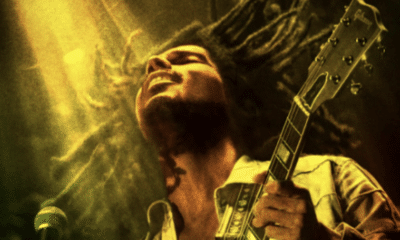
Director: Pablo Larraín
Starring: Luis Gnecco, Gael García Bernal, Alfredo Castro, Mercedes Morán
With non-centrist politics and concepts of left and right starting to gain a foothold in the mainstream media after a long period away, it’s timely that Pablo Larraín (director of Jackie) has made Neruda. Based on true events, it gives an account of Chilean Communist politician Pablo Neruda (Luis Gnecco), whose opposition to the American-influenced regime of President Videla led to him going on the run in 1948, with ambitious fascist detective Oscar Peluchonneau (Gael García Bernal) in hot pursuit.
Neruda isn’t just a man of the people but a revered poet, so has a hold on the oppressed populace that the authorities can’t match. Despite not being able to leave the country, he manages to hide in plain sight thanks to his extensive support network – a source of frustration to Peluchonneau, who feels the weight of his illustrious father behind him and is determined to make his mark on history by apprehending the rogue senator. At the core of the drama is the interaction between these two men, who barely meet, yet constantly speculate about one another via narration. It should be said this is one of the few cases I’ve experienced where a film is best enjoyed if you speak the language. The subtitles and similarity in the actors’ voices made it confusing for me to work out who was speaking at times, though this is a minor quibble.

The creation of art plays an increasingly significant role in the action, the chase being depicted as an epic narrative with Neruda wielding the pen. Though Peluchonneau also has his artistic side, grappling with the conventional crime novels Neruda leaves him by way of a tease at each location where he inevitably eludes his pursuer. With his short stature and sniffer dog features, Bernal is a dynamic but doomed figure. He starts off thinking he’s got his prey sussed out – “Communists don’t like to work, they’d rather burn churches,” he remarks at one point. However after a while he gradually begins to understand his role in Neruda’s story, leading towards an unexpected destiny. This idea is given free rein in an abstract last third, which will either be emotionally satisfying or a baffling curveball depending on your view.
Gnecco projects an understated charisma as Neruda, in a portrayal that appears to be very much warts and all. He is a great artist but is also shown as a frequenter of prostitutes and a stubborn friend and husband, giving his protectors the slip to go wandering and turning his anger on those who love him. He is caught in that strange place between man and legend, at one with the people whilst associating with the elite. A particularly interesting scene is when he’s challenged in a restaurant by a member of the public who asks in the event of his taking charge: “Will we be equal to him or equal to me?” These aspects of his character are ably brought to life by the actor. You can’t help but be reminded of Jeremy Corbyn, who’s fond of quoting Shelley to inspire voters and perceived as part of an upper echelon that apparently contradicts his populist stance.

Larraín ensures the world of freedom and imagination is never far away, from his use of deliberately retro back projection during car scenes to the jump cuts which create a jarring yet dreamlike effect during some of the exchanges.
This is a film of delicate twists and turns and it doesn’t arrive at the brutal conclusion you might think it would. At the same time it gives you a fascinating portrait of someone who believed that one day love and hope would ultimately triumph over fear.
Neruda is out now on the home formats.
Steve is a journalist and comedian who enjoys American movies of the 70s, Amicus horror compendiums, Doctor Who, Twin Peaks, Naomi Watts and sitting down. His short fiction has been published as part of the Iris Wildthyme range from Obverse Books.

Latest Posts
-


Film Trailers
/ 13 hours agoM. Night Shyamalan’s ‘Trap’ trailer lands
Anew experience in the world of M. Night Shyamalan.
By Paul Heath -


Film News
/ 1 day agoFirst ‘Transformers One’ teaser trailer debuts IN SPACE!
The animated feature film is heading to cinemas this September.
By Paul Heath -


Film Reviews
/ 1 day ago‘Abigail’ review: Dirs. Matt Bettinelli-Olpin & Tyler Gillett (2024)
Matt Bettinelli-Olpin and Tyler Gillett direct this new horror/ heist hybrid.
By Awais Irfan -


Film Trailers
/ 1 day agoNew trailer for J.K. Simmons-led ‘You Can’t Run Forever’
A trailer has dropped for You Can’t Run Forever, a new thriller led by...
By Paul Heath















